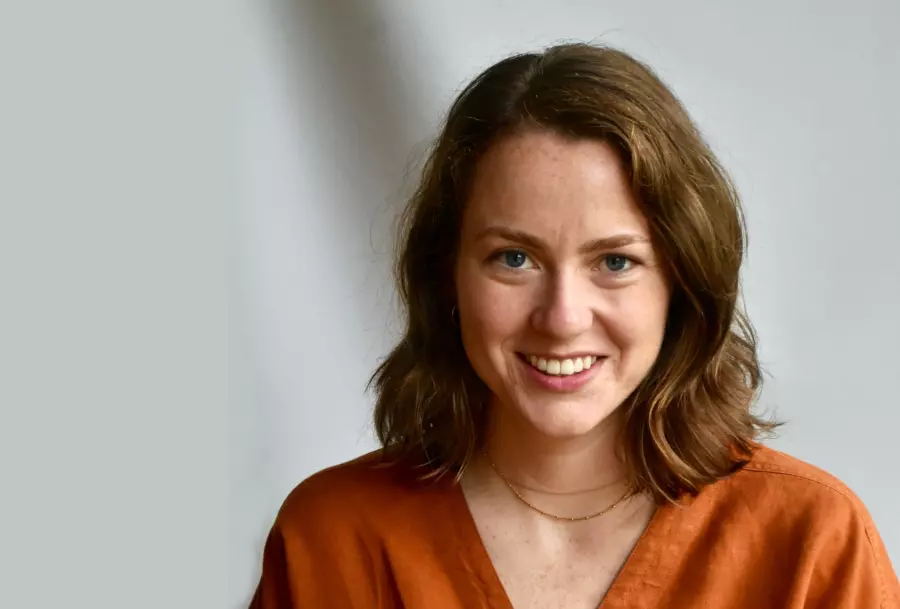
V září 2021 přijela Julia Mead do České republiky jako stipendistka Komise J. Williama Fulbrighta již podruhé, tentokrát s výzkumným projektem s názvem „Mužští hrdinové: Gender a těžba uhlí v českých zemích, 1968–2000“. Co ji táhne do Česka a čím ji fascinuje atmosféra postindustriálního úpadku?
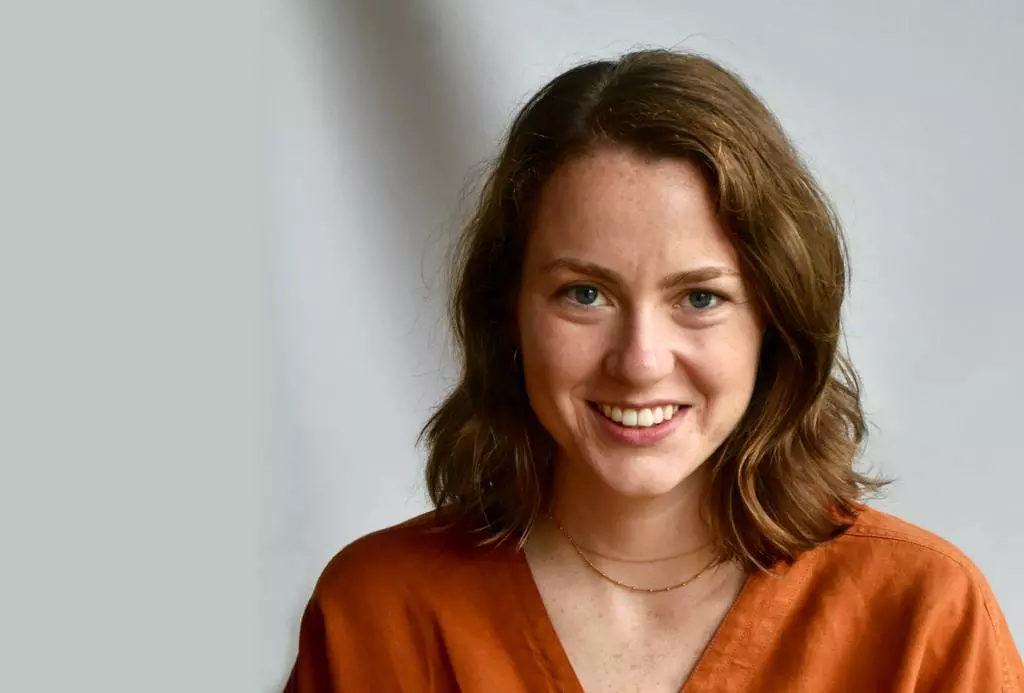
Julia Mead is a historian who is most passionate about "the connection between macro-level politics and economics and people’s personal, intimate lives." In September 2021, Julia arrived in the Czech Republic as a Fulbright student grantee with a research project titled "Masculine Heroes: Gender and Coal Mining in the Czech Lands, 1968-2000."
Julia grew up in Kentucky, in the Appalachian region, where coal mining has been on decline since the 1970s, with social and economic effects that are very similar to formerly proud coal mining hubs of Czechoslovakia. Coming from the Department of History at the University of Chicago, Julia landed at the Institute of Economic and Social History of Charles University in Prague, and she has been conducting detailed archival research for her PhD dissertation on the relationship of coal mining and masculinity. As a side-product of the research project, Julia notes that "I have become proficient in the Czech language and studied the history of the region deeply," emphasizing that she will certainly keep returning back to the Czech Republic even after the end of her 9-month grant.
What was her experience?
I came to the Czech Republic for the first time seven years ago, in January 2015. I had decided to spend a semester of my junior year of college in Prague after taking Central European history and literature courses at my college. I fell in love with the music of Antonín Dvořák, the novels of Milan Kundera, and the plays of Václav Havel. But although I came to the Czech Republic originally to learn about the culture, I returned as a Fulbright student because of something much dirtier: coal mining.
I grew up in Kentucky, a state that was once known for its coal mining and labor activism. The mining industry has steadily declined in Appalachia, the US region where Kentucky is located, since the 1970s, but the legacy of mining remains strong. Many Kentuckians have personal connections to the industry and a strong sense of nostalgia for the heyday of coal.
When I studied in Prague in 2015, I had a discussion with a Czech friend about the region of the US where I come from. She was asking about the environmental and social climate, so I told her about the complicated legacy of coal mining—environmental devastation mixed but also a sense of regional pride. She was intrigued and invited me to come with her on a visit to the town of Kladno, about 30km from the center of Prague, which was historically a mining town. The mine there closed in 1997 and is preserved as a museum.
The sense of post-industrial decline and nostalgia for the coal industry felt very familiar to me from my time growing up in Kentucky and I became curious about the cultural similarities between these two places with very different political and economic histories. Several years later I decided to return to this question in graduate school, and I have spent the past academic year in Prague and Ostrava conducting research for my PhD dissertation on coal mining and masculinity in Czechoslovakia, during which time I have become proficient in the Czech language and studied the history of the region deeply.
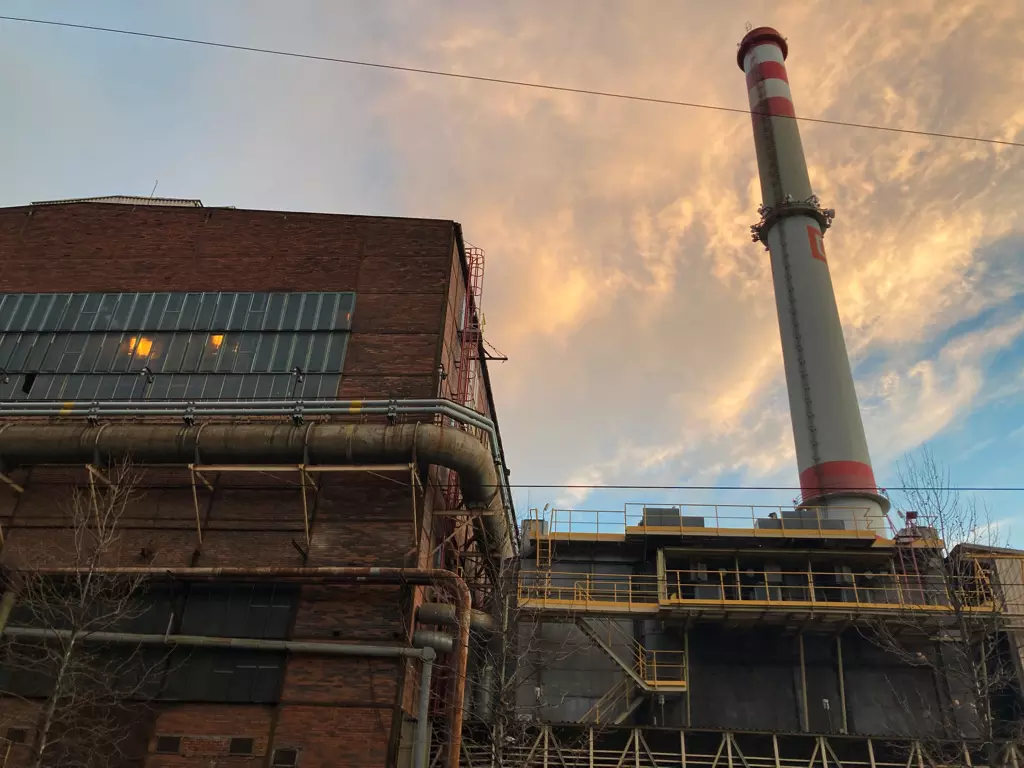
Vitkovice Steel Works, winter 2022.
Most historian’s days are quiet. To investigate the questions at the heart of my project, I have spent the past seven months in the archives. The archive I have visited most frequently is the National Archive on the outskirts of Prague in the Chodov neighborhood. I’ve encountered a variety of sources here including many, many complaints (stížnosti in Czech).
During the socialist period, a citizen could file a complaint with any state office, or simply write a complaint to the state newspaper or radio station, who would often forward it to the relevant agency. The archives now house boxes and boxes of these complaints. Some are marked “resolved,” many are not. I have been mainly interested in complaints sent to the Ministry of Mining. In them, workers often articulate their expectations for better housing, loyalty bonuses, and consumer goods like cars and refrigerators.
Sometimes, however, citizens used complaints to try to get revenge. I read one letter sent to the Ministry of Mining by a woman who had heard that her ex-husband was eligible for his pension. She was writing, she said, to inform the ministry that he had collaborated with the Nazi government during World War II and should be ineligible for benefits—he also, she slipped in at the end, left her for a twenty-five-year-old woman five years previously. As I read this, I couldn’t help but wonder what the woman who wrote the letter would think of me, a young American historian, reading her words 55 years later. I hope she would be glad that they didn’t fade into total obscurity.
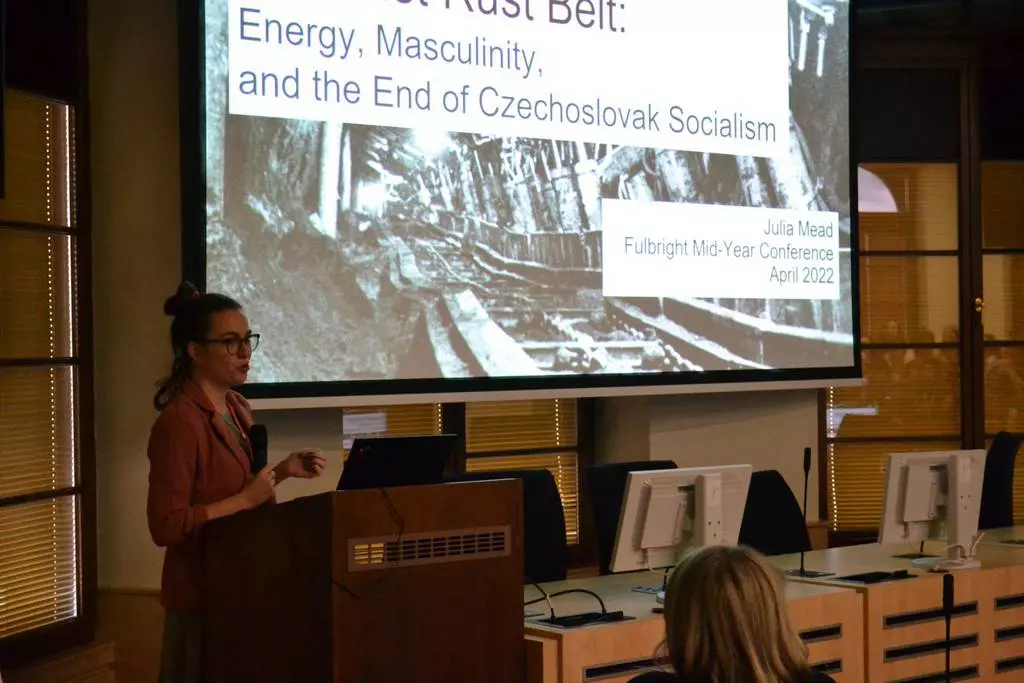
Julia presents her research project at the Fulbright Mid-Year conference for American grantees, April 2022.
Some of my most satisfying research experiences this year have been in the city of Ostrava, near the Polish border. Ostrava is the third largest city in the Czech Republic, the capital of the Silesian region, and the historical center of the national coal industry. In Ostrava I have worked in the archives of the Vítkovice steel plant, OKD coal company, and the city archives of Ostrava.
At Vítkovice I made the acquaintance of an interesting archivist who expressed deep ambivalence about the privatization of the coal industry in his hometown. At the city archives, I was lucky to stumble upon records from a marriage counseling center that operated from 1972-1993. The archivist there generously anonymized the records (scanning them and blacking out the names and addresses) so that I could read them without violating the Czech Republic’s privacy laws for archival materials of a personal nature. Through these records, I was able to learn about how the economic pressures of the 1989 transition to capitalism played out at miners’ dinner tables and in their bedrooms. This was particularly satisfying because I am deeply interested in the connection between macro-level politics and economics and people’s personal, intimate lives.
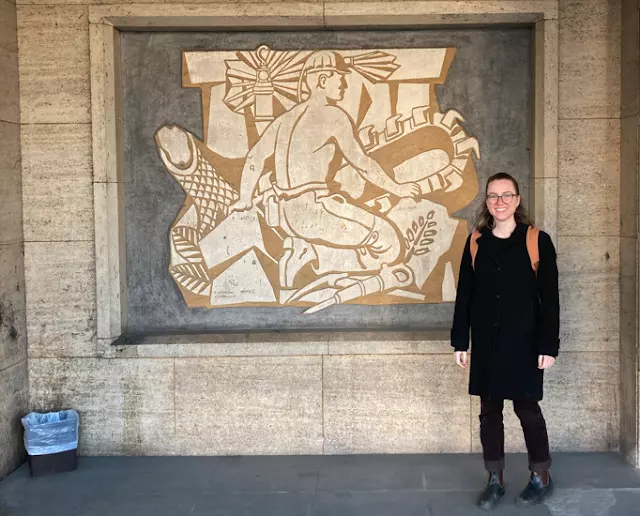
Julia in Vitkovice, Ostrava, winter 2022.
My Fulbright experience has given me the opportunity to dive into intellectual questions that have preoccupied me for years, and to have new adventures and form new friendships. I have been lucky to see my fellow Fulbrighters give lectures and performances, to have stimulating conversations over frosty mugs of beer, and to explore the Czech Republic beyond Prague. I am sure I will return again.
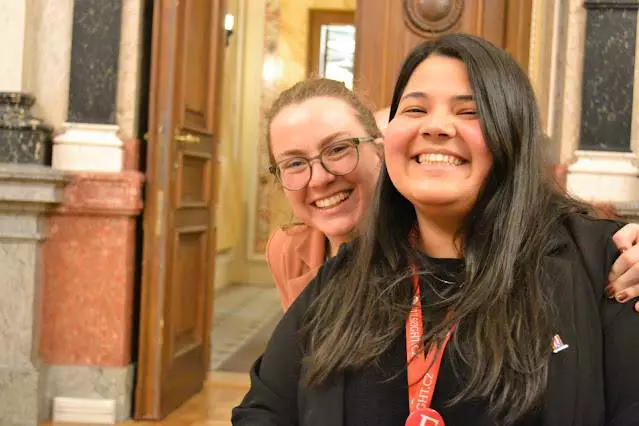
Julia with another fellow Fulbright student grantee Katherine at the Fulbright mid-year conference in April 2022.
Článek vyšel v dubnu 2022 v rámci blogu Komise J. Williama Fulbrighta s názvem Julia Mead: From Kentucky to Ostrava: Exploring Rust Belts on Both Sides of the Atlantic
Zdroj: Komise J. Williama Fulbrighta 
Foto: Julia Mead
- Autor článku: ne









































